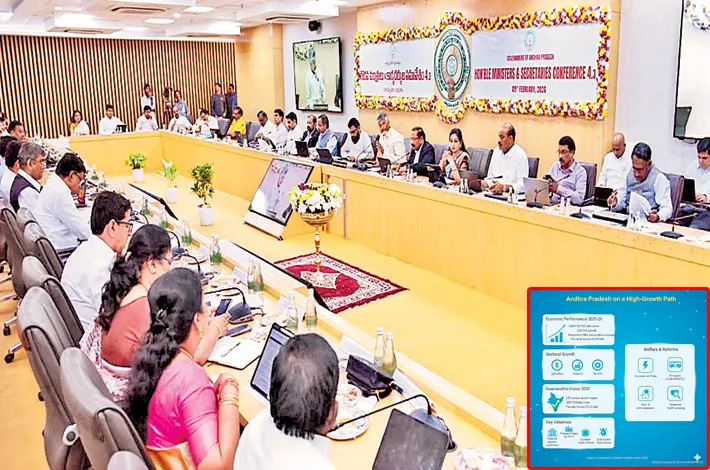Navigating Relationships in Married Life: A Guide for Women
24-04-2025 12:00:00 AM

Marriage is a profound journey, a partnership that evolves through shared experiences, challenges, and joys. For women, navigating relationships in married life often involves balancing personal aspirations, societal expectations, and the dynamics of partnership.
While every marriage is unique, certain principles can help women foster a healthy, fulfilling relationship with their spouse. This article explores practical strategies for handling relationships in married life, emphasizing communication, emotional intelligence, mutual respect, and personal growth.
1. Prioritize Open and Honest Communication
Communication is the cornerstone of any successful marriage. For women, who often juggle multiple roles—partner, professional, caregiver—clear and open dialogue with their spouse is essential. Misunderstandings can arise when assumptions replace conversations, so make it a habit to express your thoughts and feelings directly.
* Practice active listening: When your spouse speaks, listen without planning your response. Reflect on what they’ve said by paraphrasing or asking clarifying questions. This shows you value their perspective.
* Use “I” statements: Instead of saying, “You never help around the house,” try, “I feel overwhelmed when household tasks pile up, and I’d appreciate more teamwork.” This reduces defensiveness and fosters collaboration.
* Schedule regular check-ins: Set aside time weekly or monthly to discuss your relationship, goals, or concerns. These moments can prevent small issues from snowballing.
For example, if you’re feeling disconnected, initiate a calm conversation about how you can spend more quality time together. Communication isn’t just about resolving conflicts—it’s about building intimacy and understanding.
2. Cultivate Emotional Intelligence
Emotional intelligence (EQ) is the ability to recognize and manage your emotions while empathizing with your spouse’s feelings. In married life, EQ helps women navigate the emotional ebbs and flows of partnership.
* Self-awareness: Reflect on your emotions before reacting. If you’re upset, ask yourself why and whether your response aligns with the issue at hand. Journaling can help clarify your feelings.
* Empathy: Try to see situations from your spouse’s perspective. If they’re stressed from work, offer support rather than taking their mood personally.
* Regulate reactions: During disagreements, take a pause if emotions run high. A brief walk or deep breaths can prevent hurtful words.
For instance, if your spouse seems distant, consider external factors like work pressure rather than assuming it’s about you. High EQ fosters patience and strengthens emotional bonds.
3. Set Boundaries and Respect Independence
Marriage is a partnership, not a merger of identities. Women often face societal pressure to prioritize their spouse’s needs over their own, but maintaining individuality is vital for a balanced relationship.
* Define personal boundaries: Communicate what you need to feel respected, whether it’s time for hobbies, friendships, or self-care. For example, if you need an hour each evening to unwind, discuss this with your spouse.
* Support their independence: Encourage your spouse to pursue their interests, too. A healthy marriage allows both partners to grow individually while growing together.
* Negotiate shared responsibilities: Discuss how to divide household and parenting duties fairly. Clear expectations prevent resentment.
For example, if you’re passionate about your career, ensure your spouse understands its importance to you. Mutual respect for each other’s autonomy creates a stronger partnership.
4. Nurture Intimacy and Connection
Intimacy—emotional, physical, and intellectual—is the glue of married life. Women can take proactive steps to keep the spark alive, even amidst busy schedules.
* Prioritize quality time: Plan date nights, weekend getaways, or simple activities like cooking together. Shared experiences rebuild connection.
* Express appreciation: Small gestures, like thanking your spouse for their efforts, reinforce positivity. A note saying, “I’m grateful for how you always make me laugh,” can go a long way.
* Address physical intimacy: Openly discuss your needs and desires. If intimacy wanes due to stress or life changes, approach the topic with honesty and patience.
For instance, if you’ve both been preoccupied with parenting, carve out time for just the two of you, even if it’s a coffee date at home after the kids are asleep. Intimacy thrives on intentional effort.
5. Embrace Conflict as Growth
Conflicts are inevitable, but they don’t have to harm your marriage. For women, who may feel pressure to keep the peace, learning to handle disagreements constructively is empowering.
* Focus on the issue, not the person: Avoid personal attacks. Instead of saying, “You’re so selfish,” address the specific behavior, like, “I felt hurt when you made that decision without consulting me.”
* Seek compromise: Marriage is about finding middle ground. If you disagree on finances, propose a budget that incorporates both your priorities.
* Know when to seek help: If conflicts persist, consider couples counseling. A neutral third party can offer tools to navigate challenges.
For example, if you argue about parenting styles, discuss your values and create a unified approach. Conflict, when handled well, can deepen understanding.
6. Invest in Personal Growth
A fulfilling marriage starts with a fulfilled self. Women should prioritize their mental, physical, and emotional well-being to bring their best to the relationship.
* Pursue passions: Engage in activities that bring you joy, whether it’s painting, fitness, or learning a new skill. A happy you contributes to a happy marriage.
* Seek support: Build a network of friends, mentors, or therapists to lean on. External perspectives can offer clarity during tough times.
* Practice self-compassion: Let go of perfectionism. You don’t need to be a “perfect” wife—just an authentic one.
For instance, taking a weekly yoga class can recharge you, making you more present for your spouse. Personal growth enhances your capacity to love and be loved.
7. Adapt to Life’s Seasons
Marriage evolves through life stages—newlyweds, parenthood, empty nesting, retirement. Women can lead the way in adapting to these changes with grace.
* Stay flexible: What worked early in your marriage may need tweaking later. If career demands shift, renegotiate how you support each other.
* Celebrate milestones: Acknowledge anniversaries, promotions, or personal achievements. These moments reinforce your shared journey.
* Revisit goals together: Periodically discuss your dreams as a couple, whether it’s traveling, financial planning, or personal growth.
For example, if you’re navigating parenthood, discuss how to balance couple time with family life. Embracing change keeps your marriage resilient.
Conclusion
Handling relationships in married life requires intention, patience, and love. For women, this means fostering open communication, cultivating emotional intelligence, respecting boundaries, nurturing intimacy, embracing conflict, investing in personal growth, and adapting to change. By prioritizing these principles, women can build a marriage that’s not only enduring but also deeply rewarding. Every step toward understanding and connection strengthens the partnership, creating a shared life filled with meaning and joy.








